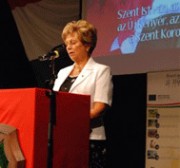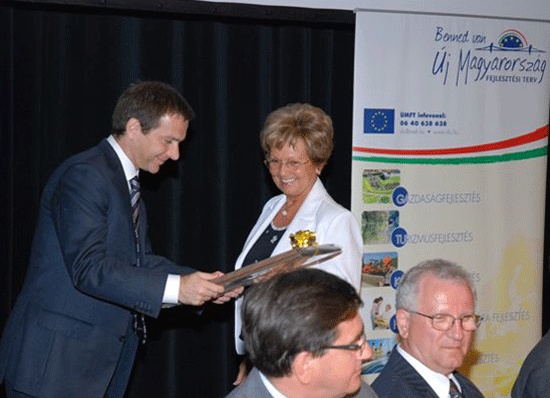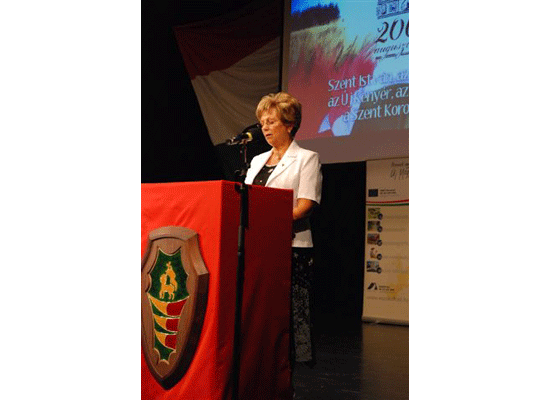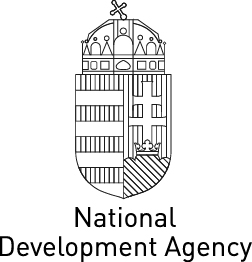EU funding for the development of religious tourism22 August 2008
 Minister of National Development Gordon Bajnai and Finance Minister János Veres officially signed the assistance contract of the priority project called „Belief and Health – Joint Initiative of Máriapócs and Nyírbátor” in Nyírbátor on 20 August. The total cost of the project approved EU funding of 2.4 billion HUF is equivalent to approximately 3.4 billion HUF.
Minister of National Development Gordon Bajnai and Finance Minister János Veres officially signed the assistance contract of the priority project called „Belief and Health – Joint Initiative of Máriapócs and Nyírbátor” in Nyírbátor on 20 August. The total cost of the project approved EU funding of 2.4 billion HUF is equivalent to approximately 3.4 billion HUF.
The project is aimed at developing the complex religious and health tourism network of the two settlements and preserving the cultural, architectural and historical heritage of the region.

Although there are currently dozens of historical sites and attractions in both Nyírbátor and Máriapócs, the vast majority of these are in an extremely poor state; moreover, suitable infrastructure is not ensured either. The number of visitors to these sites has dropped so drastically that the sites are beginning to lose their appeal as religious tourist attractions. It is not possible, for example, to organise major cultural and religious events, due to the lack of services and facilities. Even though a thermal bath has been operating in Nyírbátor for several decades, only a limited number of visitors take advantage of its potentials, because of the outdated services it offers. The fact that tourists only spend one or two nights in these settlements is also a problem.
The aim of the Belief and Health project implemented within the framework of NHDP is to restore the historical and religious sites by 2010 and make the region a more appealing tourist destination luring a higher number of tourists to the two disadvantaged settlements as an impact of these developments.
The following developments will be implemented within the framework of the priority project:
• Restoration and development of the Máriapócs Basilica and its surroundings
• Restoration of the Protestant Church in Nyírbátor
• Restoration of the Roman Catholic Church in Nyírbátor
• Development of the Nyírbátor Thermal Bath and Swimming Pool: developing the thermal bath into an indoor spa open all year round and providing high standard services by building new pools, two saunas, an infra-sauna and a steam chamber, as well as introducing special therapeutic facilities.
• Development of tourist services at Báthori Manor House: by organising a museum type exhibition increasing the intangible value of the project where historical objects will also be exhibited and by setting up an interactive tourist information system. This system will help visitors become acquainted with the history and legends of the Bathori family and the manor house.
• Establishing the Nyírbátor Town History Promenade linking the historical sites along a 450 meter long walkway. Several small ponds and a well will also be built along the Promenade.
Restoration and the development of tourism at the Greek Catholic Basilica and the churches will commence once authorisation is obtained from the National Office of Cultural Heritage and having carried out necessary research in connection with the buildings and architectural history. Archaeological and restoration work is essentially needed during the course of the development of the buildings and their environs; archaeological research and the excavation of the wall structures is also an integral part of this work. A 500 sqm green area will also be rehabilitated within the framework of the project; moreover, new parking space will also be established in the vicinity of the attractions. Tourist attractions established within the framework of the project will remain open to the public and can either be visited individually or by taking part in a guided tour leading along a pathway linking the sites.

Consequently, the development of the historical sites and tourist attractions, as well as the diverse cultural programmes offered will increase the number of visitors to the disadvantaged micro-region and therefore the number of overnight stays as well. The project which is anticipated to be completed by December 2010 contributes to strengthening the economy of the micro-region and region and indirectly helps the influx of working capital, as well as attracting further investments to the region.

